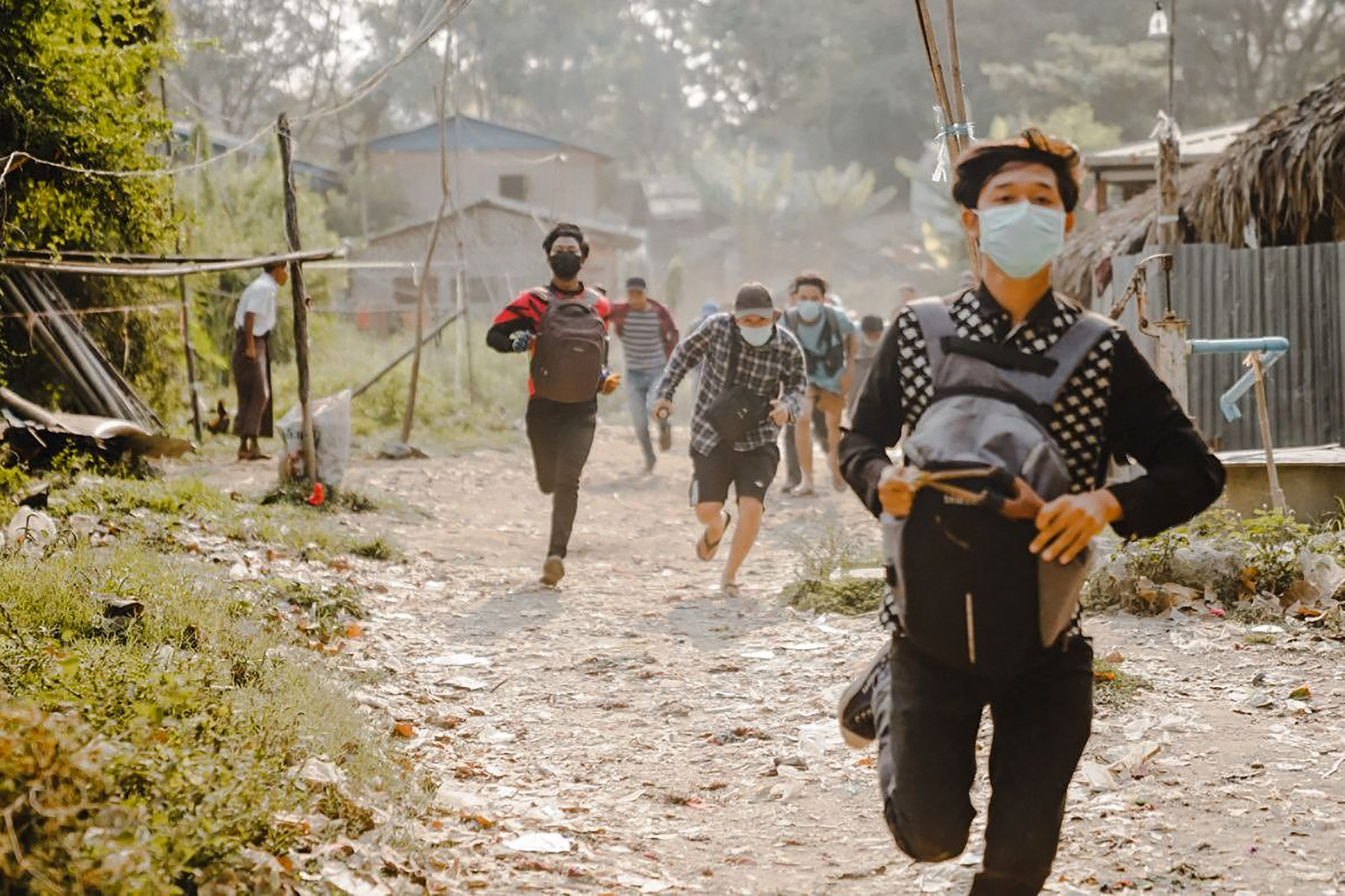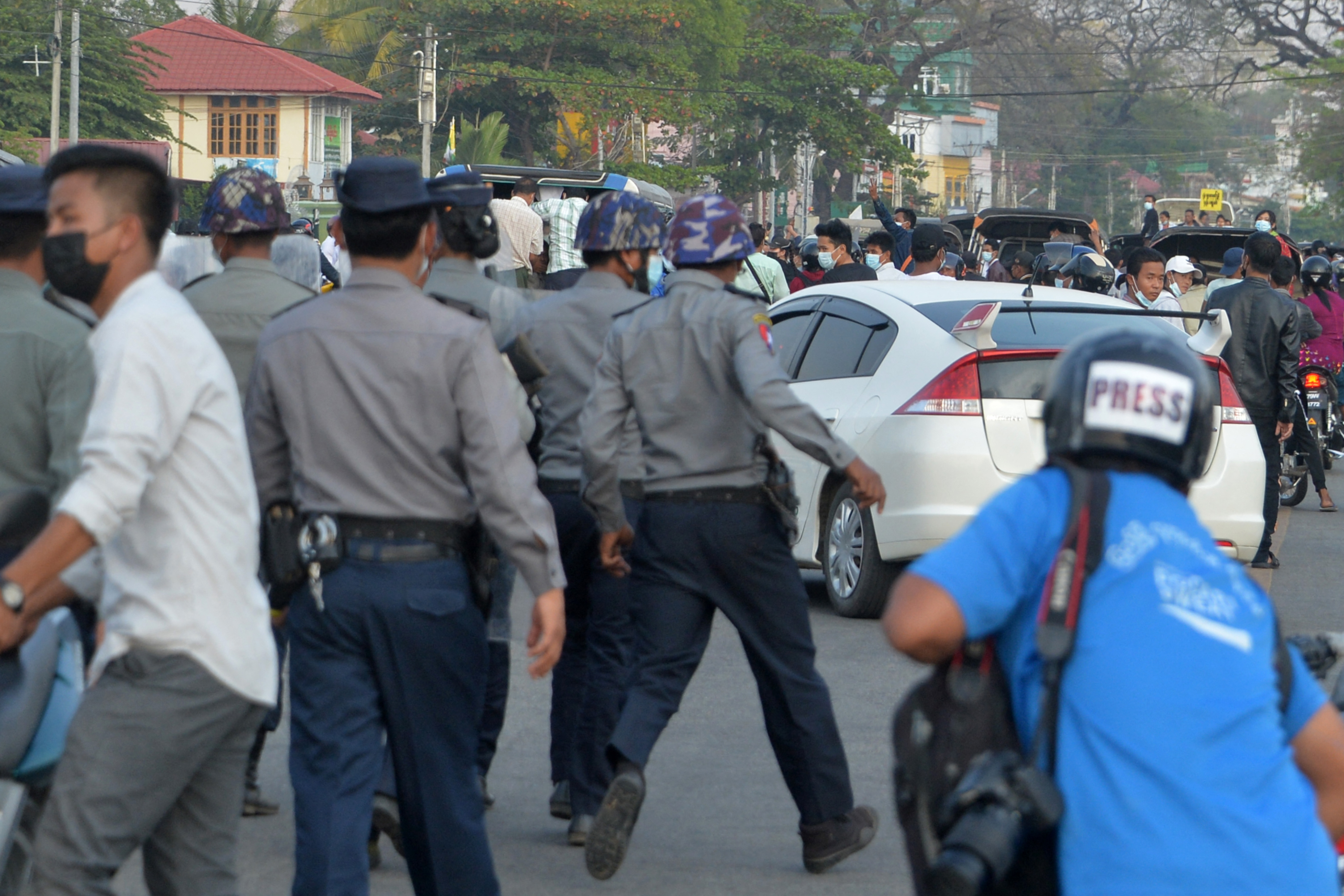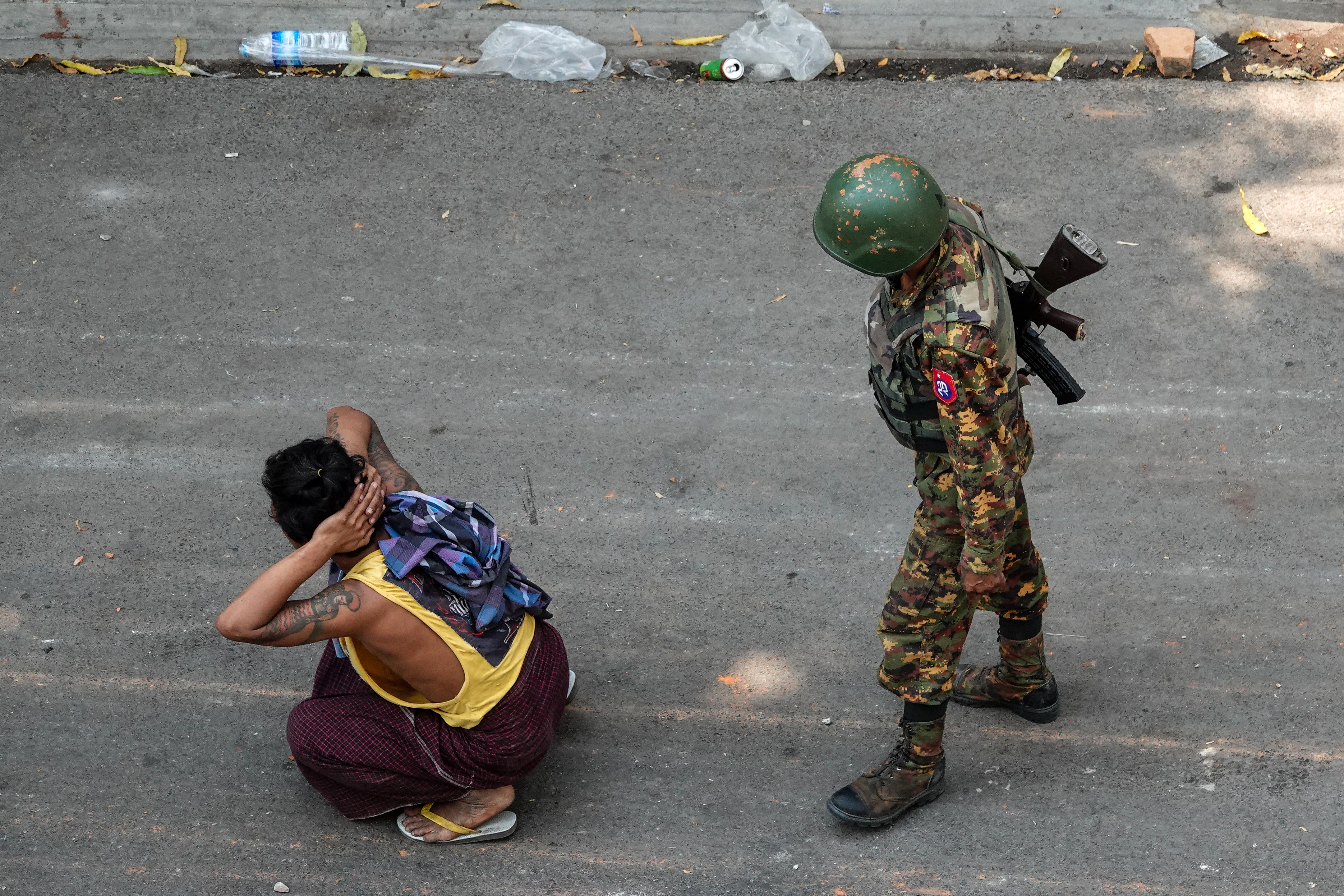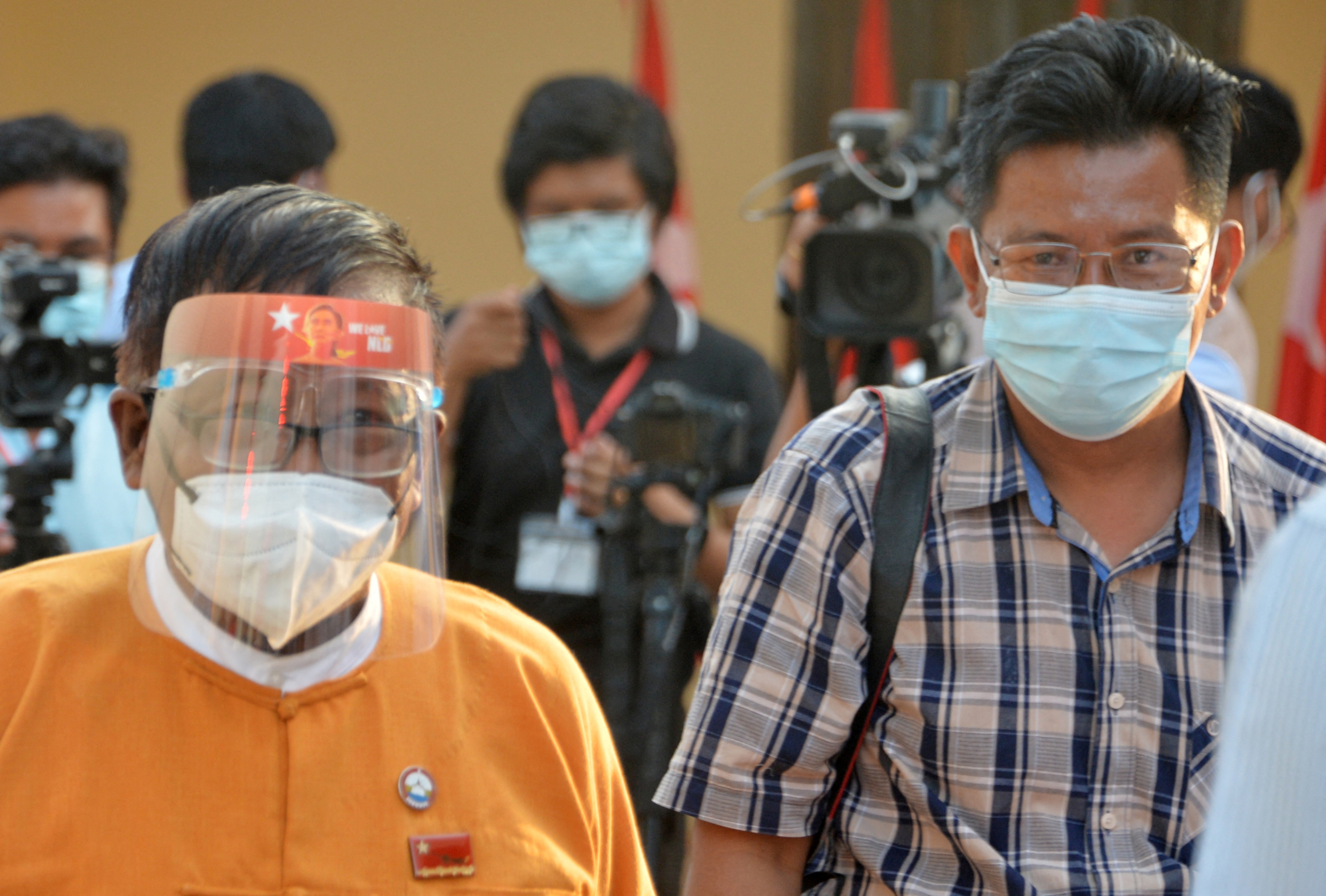How CNN’s Myanmar Trip Started a Debate Over Parachute Journalism
April 8, 2021It was the journalistic equivalent of winning the lottery. More than two months after the coup plunged Myanmar into chaos, CNN managed to secure access to the country. The network sent its star London-based foreign correspondent Clarissa Ward and her team to Yangon, making them the first international crew to fly in since the military takeover on Feb. 1.
The stakes were high. In their attempt to clamp down on opposition, Myanmar security forces have killed some 550 civilians, leaving desperate anti-coup protesters to call on the United Nations to intervene. After all, who could possibly shine a light on the country’s struggles if not CNN?
At least, that’s what viewers of the segment that aired this week were led to believe by the network itself.
“The world is lucky” to have Clarissa Ward in Myanmar, anchor John Berman told primetime viewers. In another on-air exchange, Jake Tapper showered praise on his CNN colleague. “Really appreciate your courage,” he told Ward before ending the interview by holding up the three-finger “Hunger Games” protest salute.
But as CNN patted itself on the back for landing a prized story, it has also attracted criticism for self-aggrandizement, dubious methods and endangering the very people whose plights it sought to emphasize.
Eleven residents in Yangon were reportedly detained by Myanmar security forces soon after they spoke to Ward. At least eight were later released, CNN confirmed.

Critics said the network’s heroic portrayal of itself glossed over the tireless work of plenty of journalists on the ground in Myanmar as well as elsewhere in Asia. Unlike Ward, they did not have protection or blessings by the junta to do their jobs but still continued to risk their lives to document the abuses of security forces.
Local news outlets including English-language sites Myanmar Now and Frontier Myanmar have been delivering vital coverage of their country since day one – sometimes literally putting themselves in the line of fire to document the bloody crackdowns on protesters. A Frontier photo journalist was shot through the palm of his left hand while attempting to protect three children from a bullet.
Twenty-nine journalists in Myanmar remain in detention, according to the Assistance Association for Political Prisoners monitoring group. An additional 21 were held and released, the group added, while a smaller number were in hiding after arrest warrants were issued.
A new generation of citizen journalists from the country has also proven to be invaluable, providing eyewitness clips, testimonies and striking images despite intimidation and internet crackdowns.
“CNN had the spotlight but chose to ignore the work of our local Burmese journalists, as well as others on the ground, who have been risking their safety every day to get information out there to the rest of the world,” Theo Htet, a Burmese citizen living in Singapore, told VICE World News.

But as CNN headlined its first live report as an “exclusive”, it failed to mention that it wasn’t the only media outlet that was granted access for the trip. The much smaller English-language news magazine Southeast Asia Globe also joined, but stayed well out of the spotlight until after the trip ended. And CNN didn’t delve into the details of how they managed to get into Myanmar in the first place when other foreign journalists have not been allowed to come and go freely after the coup.
According to Reuters, the trip was arranged by Israeli-Canadian lobbyist Ari Ben-Menashe, who was paid $2 million by the junta to “assist in explaining the real situation” that was happening in the country.
The self-congratulation and omissions didn’t sit well with journalists and critics in Southeast Asian media who described CNN’s reporting mission as “parachute journalism”. Some even mocked Ward for being a “celebrity white savior” who took credit for doing a job that others in cities across the country had been doing for months.
“When you are a journalist, you are meant to be reporting the news. In this situation, Clarissa Ward and CNN became the news.”
Phyo, a 25-year-old anti-coup activist from Yangon, took issue with her team’s approach to the coup, saying that the network could have just collaborated more with journalists already on the ground, adding on to what the network’s digital team had already been doing in their online coverage.
“When you are a journalist, you are meant to be reporting the news, you are not the news. But in this situation, Clarissa Ward and CNN became the news,” she said.
“CNN did not report anything new. Their story was more centered on their privilege to come into our country with the blessing of the Tatmadaw [Myanmar’s army] when other foreign media could not.”
One Myanmar photographer covering the protests, who preferred to remain anonymous for security reasons, said that Ward’s visit was “good” because it had the potential to raise awareness about the situation. CNN, after all, has a huge audience and reaches people even front-page coverage in American newspapers can’t.
But she also pointed out that it overshadowed contributions by local journalists, including those who had been contributing to CNN.
“This is something that I don’t quite like, which is that many people here on social media, including my friends, don’t know that our local journalists are filing stories to foreign desks,” she said. “So the CNN visit was like a special thing for local people. But our colleagues have been working for CNN already from here.”
Thailand correspondent for Channel News Asia, Saksith Saiyasombut, drew parallels between CNN’s trip with the media frenzy around the 2018 rescue of a youth soccer team from a Thai cave. Hordes of foreign reporters and crew descended upon a small town in northern Thailand, eager for scoops and sometimes blurring ethical boundaries.
“Some parachuted colleagues crossed a line and invaded the privacy of the kids’ family – but we locals from domestic and international media had to bear the brunt of it,” he wrote, referring to authorities’ heightened scrutiny of correspondents based in the country.

Anger over the Myanmar trip peaked when Ward hit back at her critics at the end of the government-guided tour, blaming “a handful of white male academics/commentators” for calling her out. She ignored criticisms by residents and journalists around the region.
CNN also did not respond to a request for comment on Wednesday from VICE World News.
But the network’s presence had been warmly welcomed by some locals craving more international attention to their cause, including those advocating for intervention from bodies such as the United Nations and the U.S. government. Many on social media expressed gratitude and admiration to Ward and her crew, as she pointed out. Some banged pots and pans when she arrived in a show of defiance to the military.
But to many journalists in Asia, the fallout from Ward’s trip showed a reckoning with the system of foreign correspondents – which has a history of relegating talented local reporters to roles like fixers, translators and news assistants, making a fraction of what their Western counterparts earn but taking most of the risks – was long overdue.
“The foreign correspondent model is an old construct [but] that’s not where the world is today.
“The foreign correspondent model is an old construct [but] that’s not where the world is today. With all the efforts to increase diversity and access across race, gender and experience, it’s a shame to see that the model is still very much in play,” said Alan Soon, a prominent Singaporean media analyst, in a scathing commentary.
“CNN, if you haven’t noticed, there are plenty of great journalists in Yangon itself who have a far deeper understanding of what’s been going on than someone who’s based in London.”
In one appearance, Ward said: “We wanted to come here to report on the ground because simply put… no other journalists, international journalists, have been allowed into Myanmar since this coup happened.”
But the statement was misleading. Many international journalists had, in fact, been reporting from Myanmar well before CNN sent in its crew — they were there before the military power grab and didn’t only get on the plane after the coup.
Take journalist Hiroki Kitazumi from Japan for example, who was kicked around and punched in the face by security forces while covering a pro-military demonstration in Yangon in February. He was later briefly detained for his work.
Other international reporters who covered the coup include a Polish freelance photo journalist who was beaten while documenting a protest, held for two weeks and eventually deported.

Global newswires with local staff in Myanmar have also been covering the story from the start. Aung Thura, a seasoned reporter working for the BBC’s Burmese service, was seized by men in plain clothes while working in the capital Naypyidaw. He was kept up for three nights while being interrogated and “traumatized badly”, his wife told Myanmar Now. Associated Press photographer Thein Zaw spent his 33rd birthday behind bars after some three weeks in jail.
Kitazumi, the Japanese journalist in Myanmar, told VICE World News that while he was not personally offended by the CNN coverage, he did think foreign correspondents could add more value to their coverage by first learning more about the places they cover and then devoting more time and effort to it.
“I think better coverage can be done when reporters remain in a country for an extended period of time. It’s also important to get professional perspectives about a beat,” he said.
But he added that “there were still people who haven’t yet visited Myanmar, or even learned about what was going on before writing articles.”
“At least CNN is better off simply for the fact that they went to Yangon.”
“At least CNN is better off simply for the fact that they went to Yangon.”
But as the network pushes back against criticism, observers and activists raised doubts and new questions about the CNN trip.
An online petition started by Soon and another media critic, Sanne Breimer, called for transparency around the network’s negotiations with the junta, calling it “unethical” to gain access through a lobbyist hired to do propaganda for the military.
Several activists also voiced their concerns that the CNN trip may have indirectly helped legitimize the junta as the fledgling opposition continues to fight an uphill battle to isolate the regime.
“For months we have been begging and pleading with the rest of the world not to respect or recognize these illegitimate leaders who took it upon themselves to seize power from a democratically elected government,” an activist who identified herself as Min told VICE World News. “But CNN ignored our warnings and played right into their hands, all for the expense of viewership, and that sickens us.”
“CNN played right into the junta’s hands, all for the expense of viewership, and that sickens us.”
As activist Phyo put it bluntly: “For a high-profile seasoned correspondent, Ward should have done her homework but she clearly did not. But I guess that’s what happens when you’re parachute reporting. You forget you’re there for the people because you’re enjoying being there for yourself.”
Additional reporting by Hanako Montgomery and a journalist from Myanmar who did not wish to be identified. Follow Heather Chen and Hanako Montgomery on Twitter.
